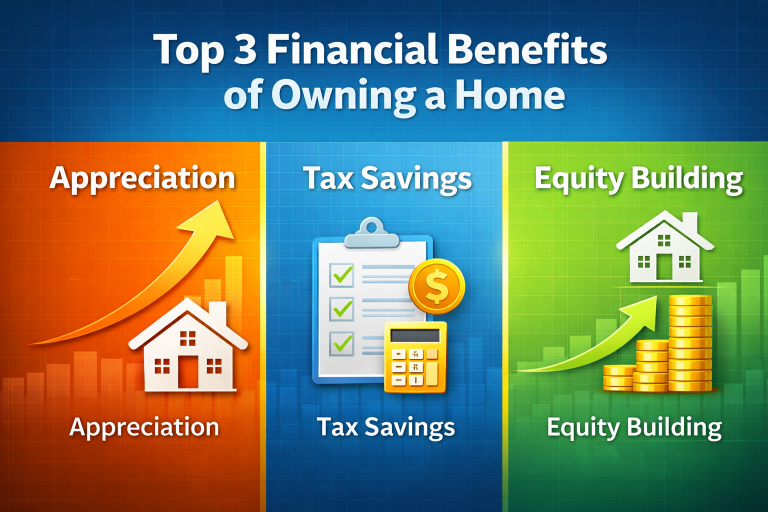What Happens If Fannie Mae and Freddie Mac Go Private?
The housing market as we know it is built on a critical but often overlooked foundation: Fannie Mae and Freddie Mac. These two government-sponsored enterprises (GSEs) have been in federal conservatorship since 2008, following the financial crisis, and they remain under the oversight of the Federal Housing Finance Agency (FHFA) to this day.
But what happens if that changes? What if Fannie and Freddie exit conservatorship and return to being fully private, publicly traded companies?
That question isn’t hypothetical anymore—it’s been quietly circling the mortgage world for years, and with each change in administration or regulatory shift, the conversation reignites.
So let’s talk about what could happen if the federal government steps away from Fannie and Freddie, and why this could dramatically reshape the 30-year fixed-rate mortgage, the bond market, and housing affordability in America.
What They Do Now (And Why It Works)
As it stands today, Fannie Mae and Freddie Mac:
-
Purchase mortgages from lenders
-
Package them into mortgage-backed securities (MBS)
-
Sell them to investors
The federal conservatorship provides a key element—confidence. Because they are government-sponsored and overseen by the FHFA, global investors treat these securities as having an implicit government guarantee. That keeps rates lower and liquidity high.
This setup also allows lenders, like myself, to offer long-term, fixed-rate loans—even up to 30 years—because the risk is absorbed and spread out in a highly efficient secondary market.
The 30-year fixed mortgage—a bedrock of American homeownership—is largely possible because of Fannie and Freddie. Their structure provides predictability, affordability, and capital stability. And right now, it’s working well. Despite inflation and rising rates, buyers can still lock in long-term loans because investors trust the system.
If They Go Private, Here’s What Changes
If Fannie and Freddie are privatized, the federal backstop vanishes. Investors will no longer assume that the U.S. government stands behind these securities.
That’s a massive shift in perceived risk.
Mortgage-backed security yields would rise to attract buyers. Translation? Mortgage rates go up.
But the bigger problem?
The long-term fixed-rate mortgage could start to disappear.
Without government backing, the credit risk on a 30-year loan becomes too high. Without a safety net, lenders either raise rates significantly or stop offering the product altogether.
We could see a shift toward:
-
Adjustable-rate mortgages (ARMs)
-
Shorter loan terms
-
Higher-cost lending overall
Example:
$600,000 loan at 6.75% over 30 years → ~$800,000 in interest
$600,000 loan at 8.25% → Over $1.1 million in interest
That’s a game-changer.
Bond Market Deterioration
Mortgage-backed securities are a cornerstone of the U.S. bond market. Without confidence in their safety and liquidity, these bonds lose value.
That means:
-
Pension funds
-
Retirement accounts
-
Global investors
Would be forced to reallocate—potentially causing market-wide disruptions. This isn’t just a housing issue. It’s a capital markets issue.
We saw what happened in 2008. The only thing that stabilized the system was the government stepping in and putting Fannie and Freddie under conservatorship.
Why It Hasn’t Happened Yet
So why haven’t they been released?
Because there’s no easy solution. Policymakers fear disrupting the housing market. Most Americans can’t afford a rate spike or the loss of the 30-year mortgage.
And if private capital takes over?
It comes at a cost.
The current system, while imperfect, works. It:
-
Supports affordable financing
-
Sustains a strong secondary market
-
Helps keep homeownership within reach
That’s why the FHFA and current administration are keeping Fannie and Freddie where they are—for now.
Bottom Line: Be Prepared
If Fannie Mae and Freddie Mac become fully privatized, we may be looking at the end of the 30-year fixed mortgage as we know it.
-
Rates would rise
-
Products would change
-
Affordability would take a hit
Especially for first-time buyers or middle-income families.
As a mortgage professional who’s helped families for two decades, I’ll be watching this closely.
If you’re thinking about buying or refinancing, now might be a smart time to act while these programs still exist in their current form.
Get a quote now.
Share:
RELATED MORTGAGE ADVICE FROM SCOTT SHELDON
Building on Land or Manufactured Homes – The Hidden Costs You Need to Know
For many buyers, the idea of buying a vacant parcel of land and building their…
View More from The Mortgage Files:
begin your mortgage journey with sonoma county mortgages
Let us make your mortgage experience easy. Trust our expertise to get you your best mortgage rate. Click below to start turning your home dreams into reality today!



